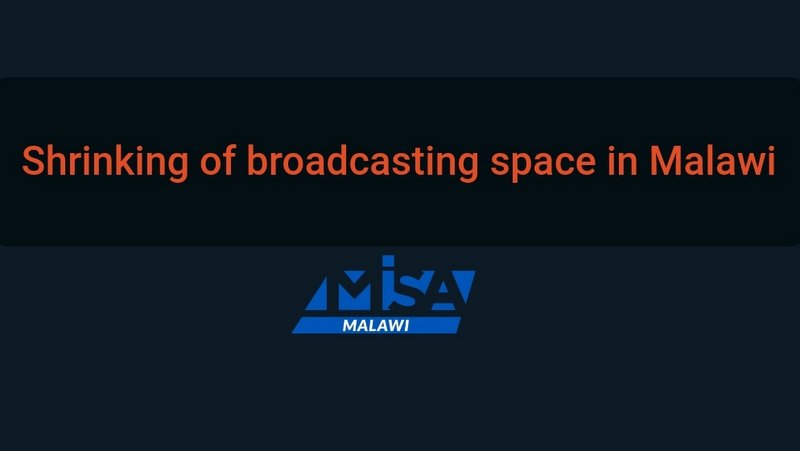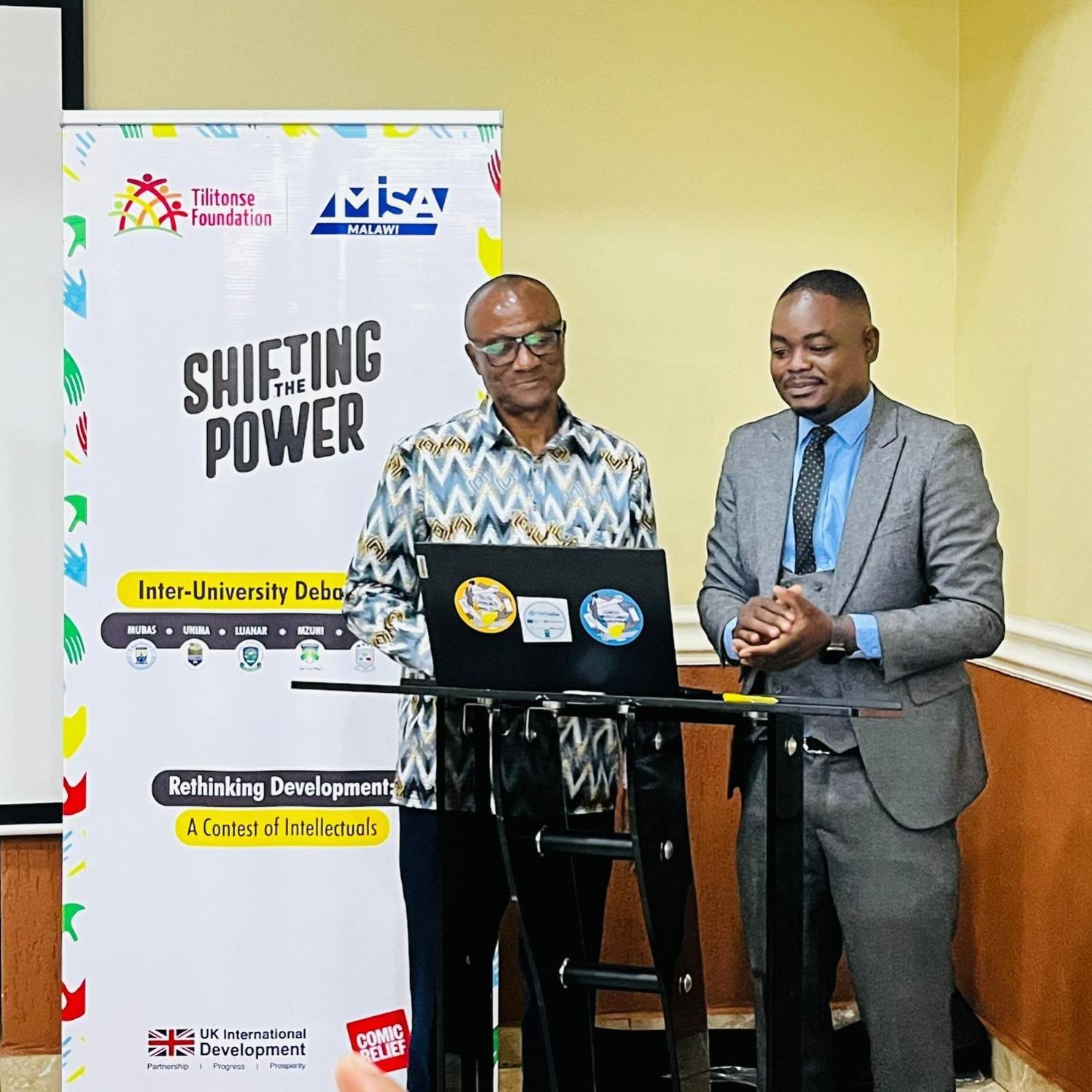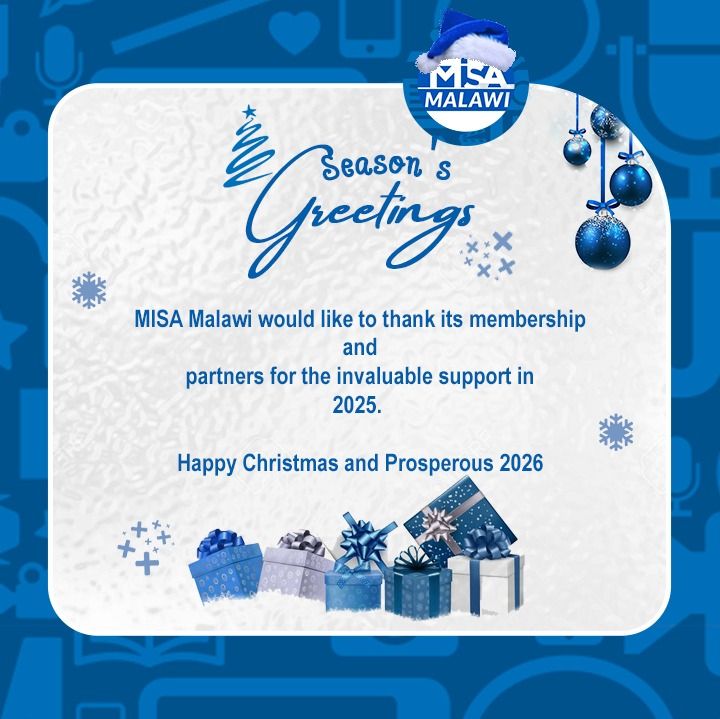The decision by the Lilongwe City Council to start licensing broadcasters is a burden to broadcasters and a serious threat to media freedom, freedom of expression and access to information for the majority of rural Malawians who rely on radio for news and information.
The Council has been circulating adverts calling on private media houses to ‘unlock their business potential by applying for a business license from the Council with Community Radio fees pegged at MK200, 000 (about $120), National Radio MK330,000 (about $200), Television MK450,000 ($265) and Digital TV Service Providers MK1,050,000 ($620).
These broadcasters already pay the Malawi Communications Regulatory Authority (MACRA) license fees which are pegged to the United States Dollar. MACRA annual content license fees for community radio stations are set at US$100, regional ones US$1,500 while national broadcasters (including television stations) are charged US$5,000. Broadcasters are already struggling to pay MACRA and renew their licenses and over 15 broadcasters have been closed since 2022 with over 250 journalists losing their jobs in the process.
Apart from paying MACRA, radio stations incur costs for co-siting on towers managed by telecommunications companies. On their part, television stations are required to pay fees to the Malawi Digital Broadcast Network Limited (MDBNL) for signal distribution (transmission of their content).
It is important to note that the broadcast media, especially radio:
- Remains the only true form of public communication due to illiteracy, limited reach of the print media, limited internet penetration, cost of data, among others Remains the most potent medium for celebrating humanity in all its diversity • Remains the most readily available platform for democratic discourse.
- Plays a crucial role in emergency communication and disaster relief.
- Readily available platform for access to information and free expression space for most marginalized groups and communities.
One would be inclined to argue that the broadcast licensing regime in Malawi ignores the importance and value of the broadcast media in the country. The regime is a serious threat to media freedom and democratic discourse and works counter to the values and principles of the African Charter on Broadcasting. The African Charter on Broadcasting is a blueprint for policies and laws determining broadcasting in Africa and calls on ‘States to promote an economic environment that facilitates the development of independent production and diversity in broadcasting.’ The Charter also provides that ‘the frequency spectrum is a public resource which must be managed in the public interest’ and that the ‘legal framework for broadcasting should include a clear statement of the principles underpinning broadcast regulation, including promoting respect for freedom of expression, access to information, diversity and the free flow of ideas and information…’
MISA Malawi is worried that the current trend targeting broadcasters is not only counter to international principles and standards, but also slowly killing media diversity & pluralism that the country has enjoyed since the early 1990s.
MISA Malawi’s Recommendations
While we respect Lilongwe City Council’s decisions and mandate, we would like to make the following recommendations:
- The broadcast sector is under threat and there is urgent need to ensure that the media is free to operate in line with Section 36 of the Constitution and international instruments and standards, including the African Charter on Broadcasting.
- The Lilongwe City Council should rescind its decision licensing broadcasting in the city. Broadcasters are already struggling to remit fees to MACRA, MDBNL and telecommunications companies in the country and should not be required to pay more taxes when they are already burdened by other taxes.
- The City Council should engage and ensure they consult widely before introducing fees targeting the media and other sectors.
- The Ministry of Information should engage other government entities and standardize how the broadcast media is licensed and regulated. As it stands, we believe the Communications Act (2016) is the primary legislation governing the sector.
- All media houses should unite and fight efforts to stifle the media.
- The right to know is a fundamental right and the touchstone of other rights. Malawians rely on the broadcast media to exercise this right and the licensing regime in the country should not undermine and stifle the broadcast media and in the process limit people’s right to know.
- The media should be supported to ensure free flow of information as the country approaches the 2025 Tripartite Elections. The economic environment is already retrogressive and urgent steps are needed to support and not kill the media.
For feedback
MISA Malawi Chairperson Golden Matonga
Cell: +265 99 616 9705 or email goldenmatonga@gmail.com
MISA Malawi National Director Aubrey Chikungwa
Cell: +265 999 327 311 or email info@misamalawi.org









